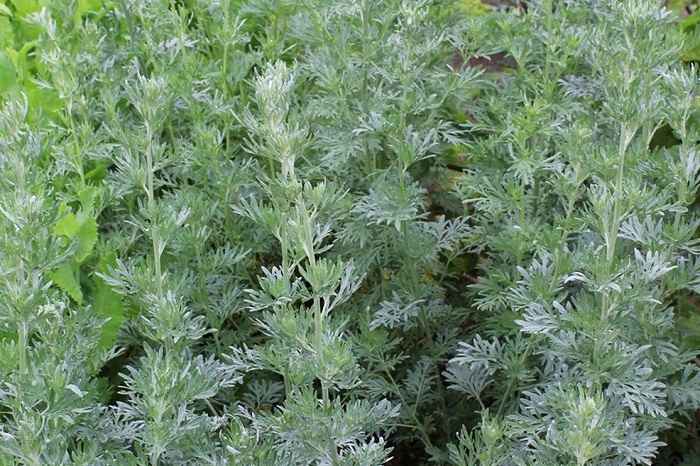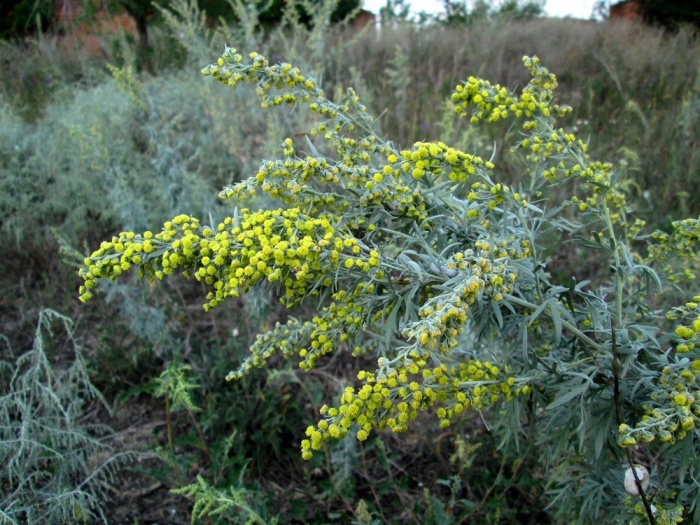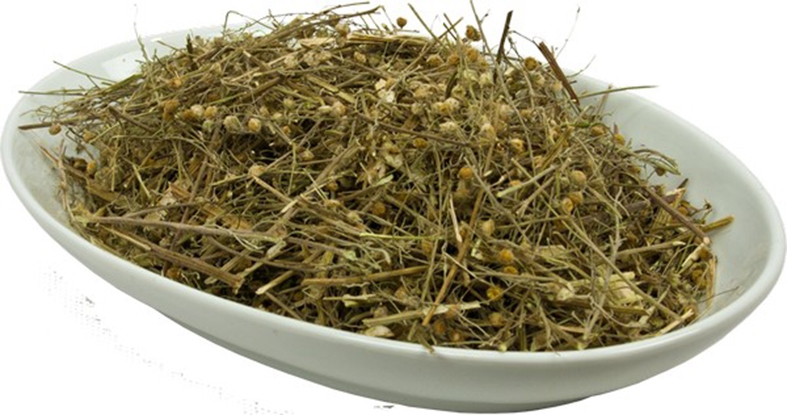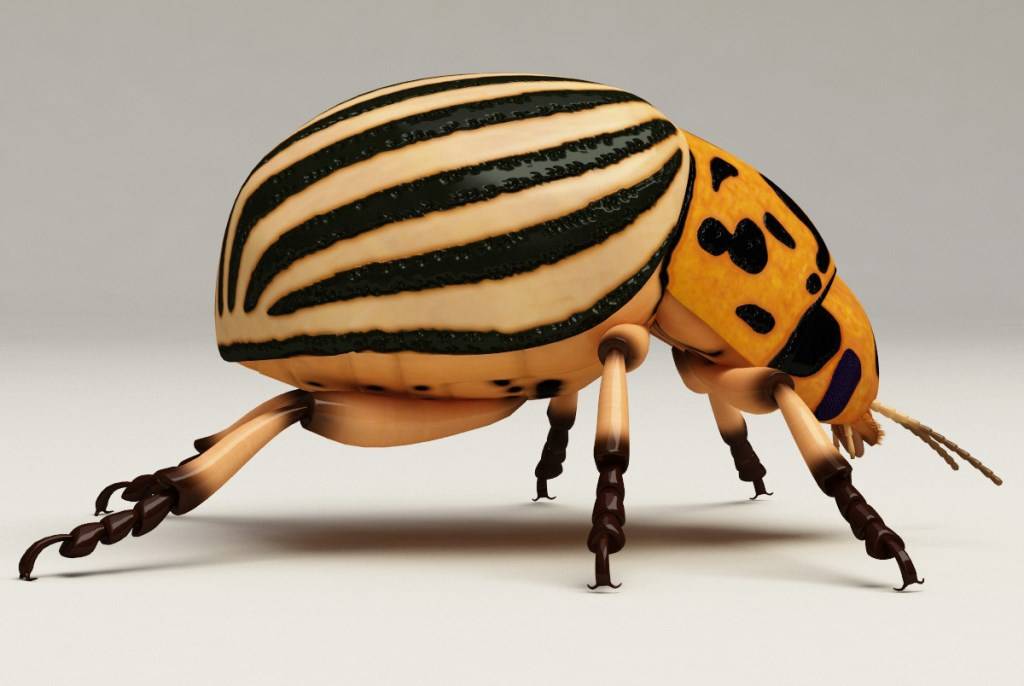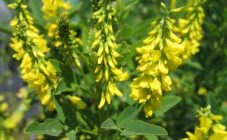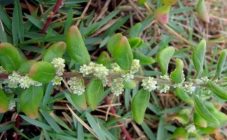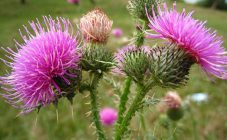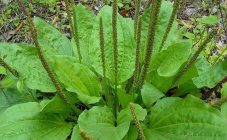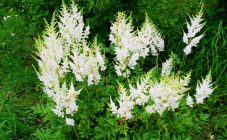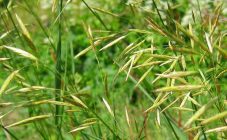Content:
Most people do not pay attention to wormwood, as they are used to considering it a useless weed. However, the negative opinion changes to the opposite as soon as they learn about the benefits of the bitter herb. It has healing properties, magical significance and an interesting history. And some of its types are actively used in landscape design as decorative.
Feature and Description
Few plants can boast as many names as wormwood. It is known as bitter grass, chernobyl, polina, wormwood, wormwood, widow's grass. The Latin name, Artemisia, goes back either to the name of the goddess Artemis, or to the ancient Greek word meaning "health". Scientists have not yet fully figured out this issue, but they have thoroughly studied the properties of the grass itself.
Common wormwood, popularly known as Chernobyl, is an annual shrub with a tall, stiff stem. The leaves of the plant have a claw-like shape, a strong characteristic smell. Their color varies depending on the species. The Chernobyl leaves have a rich green color, and the no less common bitter wormwood has silvery leaves. Pubescence may be present on the leaf blade.
Those who have plucked wormwood leaves know firsthand about the long-lasting bitter taste of the plant. Because of him, this grass is bypassed by many animals and insects.
Chernobyl blooms from mid-summer (July - August), seeds appear later, by October.
The plant is surprisingly undemanding to soil. This is evidenced by its prevalence in wastelands and in places with remains of the foundation in the ground. Stony, uncultivated land will not prevent the Chernobyl worker from growing and bearing fruit. Nevertheless, in cultural cultivation, it is worth taking care of feeding so that the plant is healthy and large.
Caring for wormwood is extremely simple: it needs to be cut to maintain its decorative appearance. The plant will live peacefully without watering and loosening. You can moisten the soil in the hot season, but you should not abuse this procedure: the Chernobyl, like other plants, does not like stagnant water at the roots.
Varieties and types
Many people believe that there is one type of wormwood. And all the other representatives of this species are given the name "grass like wormwood". In fact, there are a great many varieties and varieties of bitter herbs that are different from each other.
Along with ordinary wormwood, wormwood is widespread. As the name suggests, this plant has a strong aroma and bitterness. The healing properties of the silvery bitter herb have been known since ancient times. To this day, it is actively used in medicine.
Austrian wormwood, also popularly known as wormwood, is a plant with smaller, brownish-silvery leaves that is also very common. It is not found only in the Far North.
Wormwood God's tree is a long-standing inhabitant of Europe.The tree was named for its unusual height for wormwood - up to 1.5 m. Thanks to this feature, gardeners often use this variety as a decorative one, creating non-standard flower arrangements on the site.
There is also spreading wormwood, which is used for animal feed, and tarragon wormwood, which is used in the production of the Tarhun drink.
Low-growing varieties are most often used as decorative ones. Representatives of such varieties can decorate a flowerbed as:
- Steller's wormwood. Bush up to 30 cm high, with dense decorative foliage. Its unpretentiousness resembles ordinary wormwood.
- Wormwood Pursha. View with carved, pubescent silvery leaves. The plant can be trimmed.
- Wormwood Schmidt. It takes root well on stony, poorly cultivated soil.
The flowers of the bitter grass are small and have no decorative value.
Benefits and contraindications
Wormwood is one of the main medicines in nature's green pharmacy. This plant has a number of scientifically proven and time-tested positive properties. Everyone knows what wormwood herb looks like, but few know what benefits it hides in itself.
Decoctions and infusions are made from an ordinary Chernobyl, and both the aboveground and underground parts of the plant are used.
It has the following effects on the human body:
- protects against the development of tumors;
- helps with alcoholism;
- soothes with neuroses;
- strengthens the body for colds;
- improves bowel and stomach function.
Medicines from Chernobyl are contraindicated for pregnant women, people with asthma, anemia. They should be used with caution by those who are prone to allergic reactions.
Bitter wormwood is capable of providing the body with no less benefit. It works like:
- anti-inflammatory;
- antiseptic;
- choleretic;
- antispasmodic.
This species has long been used as an anthelmintic, it can improve appetite. In the pharmacy, it is found as a drug called Wormwood bitter herb. Contraindicated in people suffering from ulcers and cholecystitis.
No less useful is wormwood grass (the use of which is not as intensively developed as in the above-described species), it is also Austrian wormwood.
This plant has the following properties:
- able to help the digestive tract;
- has an anthelmintic effect;
- relieves heat;
- cures for lack of appetite.
Not only medicinal infusions are prepared from the plant, but also the original alcoholic drink - vermouth. Its name is translated from German and means "wormwood".
Diseases and pests
Wormwood grass not only does not suffer from pests, but also scares them away from neighboring beds. And wormwood infusion will help protect potatoes from invasions of the Colorado potato beetle.
The plant is extremely rarely affected by diseases. This is mainly powdery mildew, which appears when grown in too damp places or due to excessive watering.
Collection time
They are harvested from July to mid-August, when the plant enters the flowering phase. Cut plants are laid out in a shaded, ventilated place and dried. You can hang them to dry in bunches. The optimum temperature is about +35 ° С. For convenience of storage, the finished raw materials are crushed. Store in linen bags, no more than 2 years.
The common wormwood herb can restore health to a person and strengthen his immunity. The bitter weed, which has become familiar on the side of the roads, should be learned to perceive as respectfully as the ancients perceived it. No wonder the winners of the competition were given a sip of the bitterest wormwood tincture as a prize. After all, there is nothing more important and more expensive than the health that a medicinal plant keeps.

